What may be number of carpels in the flower shown below?
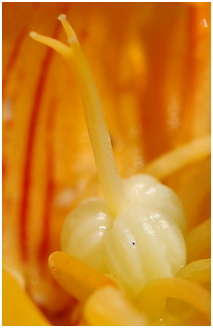
1. 1
2. 2
3. 3
4. 4

2. 2
3. 3
4. 4
The type of placentation of ovules in the following flower is known as:
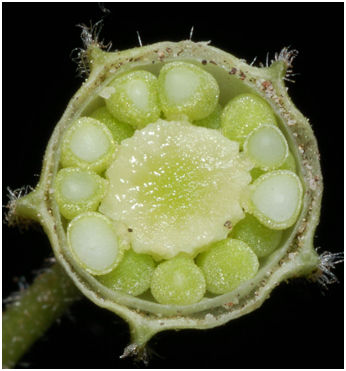
1. Basal
2. Free central
3. Marginal
4. Parietal

To unlock all the explanations of 38 chapters you need to be enrolled in MasterClass Course.

To unlock all the explanations of 38 chapters you need to be enrolled in MasterClass Course.
Match each item in COLUMN I with one in COLUMN II and select the correct answer from the codes given:
|
|
COLUMN I [Special types of plants] |
|
COLUMN II [Example] |
|
A. |
Total stem parasites |
a. |
Mistletoe |
|
B. |
Partial stem parasites |
b. |
Dodder |
|
C. |
Total root parasites |
c. |
Sandalwood |
|
D. |
Partial root parasites |
d. |
Broomrape |
Codes
A B C D
1. a b c d
2. b a d c
3. c d a b
4. d c b a
The floral features shown in the given figure characterizes the members of Family:
| 1. Fabaceae | 2. Solanaceae |
| 3. Liliaceae | 4. Brassicaceae |

To unlock all the explanations of 38 chapters you need to be enrolled in MasterClass Course.

To unlock all the explanations of 38 chapters you need to be enrolled in MasterClass Course.
The sub-aerial modification of the stem shown below is:
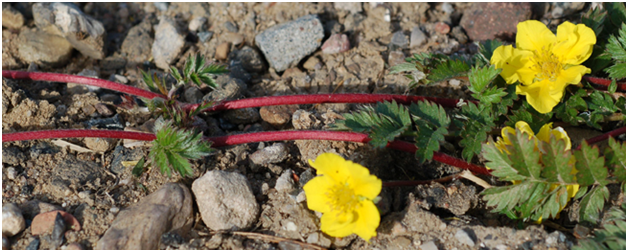
1. Stolon
2. Runner
3. Rhizome
4. Offset
The condition of the stamens in the given picture is:

1. Didynamous
2. Tetradynamous
3. Synandrous
4. Syngenesious
The structure shown be arrow in the given picture is called as:
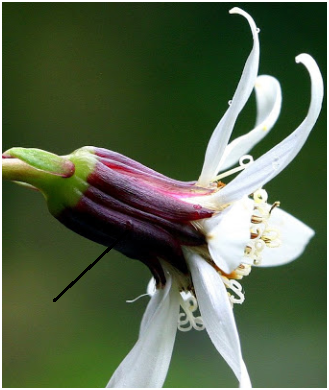
1. Involucre
2. Spathe
3. Glume
4. Epicalyx
A shows underwater leaves and B above water leaves in Limnophila heterophylla. This is an example of:
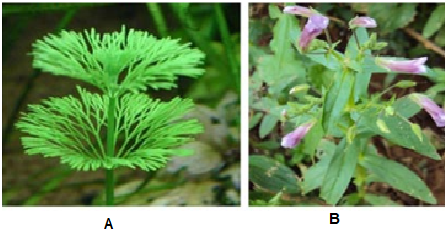
1. Norm of reaction
2. Developmental noise
3. Incomplete penetrance
4. Phenotypic plasticity
The arrow shows structure where basal portions of the calyx, the corolla, and the stamens form a cup-shaped tube. This is called as:
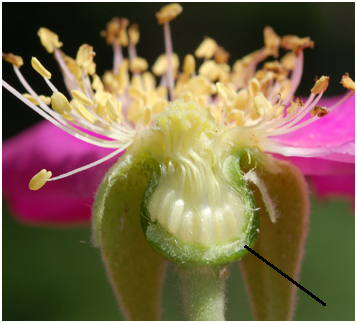
1. Thalamus
2. Gynandrophore
3. Peduncle
4. Hypanthium
Match type of adhesion of stamens with example and select the correct answer from the codes given:
| Adhesion of stamens | Example | ||
| A. | Epipetalous | a. | Datura |
| B. | Epiphyllous | b. | Tulip |
| C. | Gynandrous | c. | Calotropis |
Codes
| A | B | C | |
| 1. | a | b | c |
| 2. | b | a | c |
| 3. | c | a | b |
| 4. | a | c | b |







